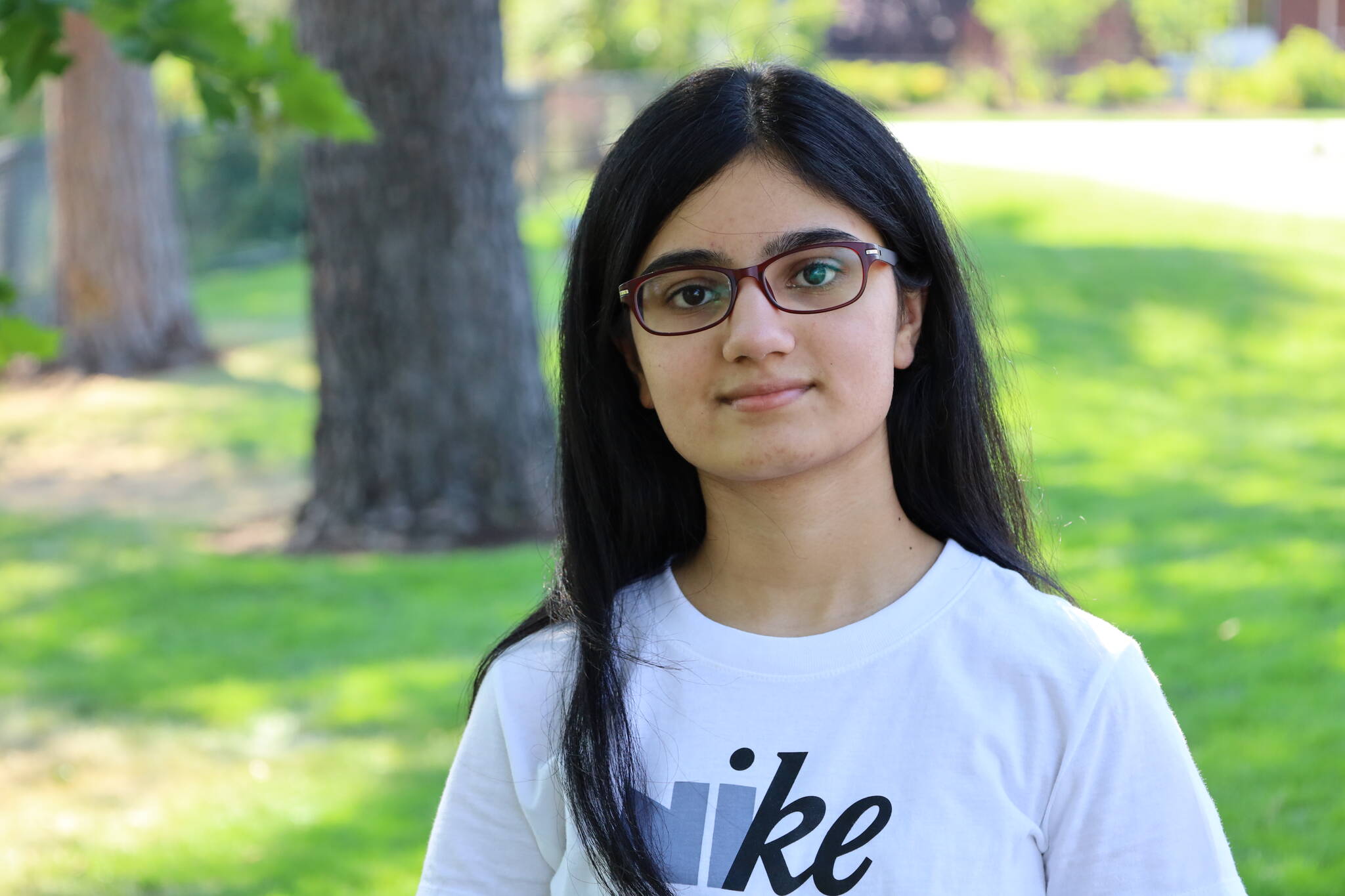At the age of 15, Subha Vadlamannati is already making a major impact on peoples’ lives through her vast knowledge of and participation in the STEM (science, technology, engineering and math) fields.
During a recent Zoom interview, the Mercer Island High School (MIHS) sophomore was brimming with confidence, speaking strongly about her passion for STEM. She let out a chuckle or two along the way as well, displaying that she’s still a teenager after all.
She recently garnered the attention of the Society of Women Engineers (SWE), which has championed women engineers for more than 70 years and welcomed Vadlamannati into its fold with a SWENext STEM In Action Award.
One of the reasons why SWE honored the aspiring computational linguist was for a research paper she wrote regarding the gender wage gap between female and male refugees, in which she employed data science and statistics in the R computer programming language. The paper will be published in the Journal of Student Research in the next month or so.
Vadlamannati was one of copious SWENext honorees in grades 6-12 who are taking their STEM activities beyond the classroom by doing research and volunteering in the community.
The founder of her own nonprofit Linguistics Justice League, founder and president of the Computational Linguistics Club and president of the MIHS Math Club hopes to major in computational linguistics in college.
She’s also interested in pioneering more research in what are referred to as low-resource languages like African dialects and a multitude of others that “don’t have resources to build the technologies that can enable ASR (automatic speech recognition),” according to Preetha Jyothi in a Beckman Institute article.
“The whole point of our new nonprofit was to sort of bring technology into the mix and also have a group of people working on translation for these low-resource languages,” Vadlamannati said. “I decided to learn more about machine learning and the field called computational linguistics, which deals with machine translation.”
According to the Stanford Encyclopedia of Philosophy: “Computational linguistics is the scientific and engineering discipline concerned with understanding written and spoken language from a computational perspective, and building artifacts that usefully process and produce language, either in bulk or in a dialogue setting.”
Vadlamannati’s interest in computational linguistics arose when she was volunteering as a tutor to bring STEM subjects (mainly chemistry and math) into the lives of underserved children, specifically within the refugee and immigrant population. She began tutoring in-person for the nonprofit Atlantic Street Center in seventh grade and now connects with students on Zoom through the nonprofits Refugee Women’s Alliance and World Relief.
“I decided to become more involved because it was really important to me that these kids got a proper education,” she said of the mainly K-3 female students (although she does tutor some in grades 3-5) who reside throughout the state of Washington.
The computational linguistics part comes into play when she realized that only a small amount of the 300 children in the nonprofit programs could attend her sessions because a majority of them didn’t speak English. Through her Linguistics Justice League, she aims to remove the language barrier by utilizing machine translation. She also learned Arabic over the summer to communicate with the students from the Middle Eastern and North African regions.
“It is definitely very satisfying to see the impact that this tutoring and technology has had on the students’ lives. I love seeing their faces brighten up when they learn new concepts,” said Vadlamannati, adding that she’d like to inspire other students to use their STEM skill sets to help make a difference with global matters like climate change or health-related issues like the pandemic.
“You need to find a world issue that really resonates with you. For me, this was the refugee and immigrant crisis because I learned about this through debate,” she said, noting that she resides in an immigrant household.
When she’s not wrapped up in STEM, Vadlamannati plays classical music on the piano, digs into some drawing and graphic design and enjoys joining her mom to cook the Indian dish of shahi paneer — cheese curry — in the kitchen.


